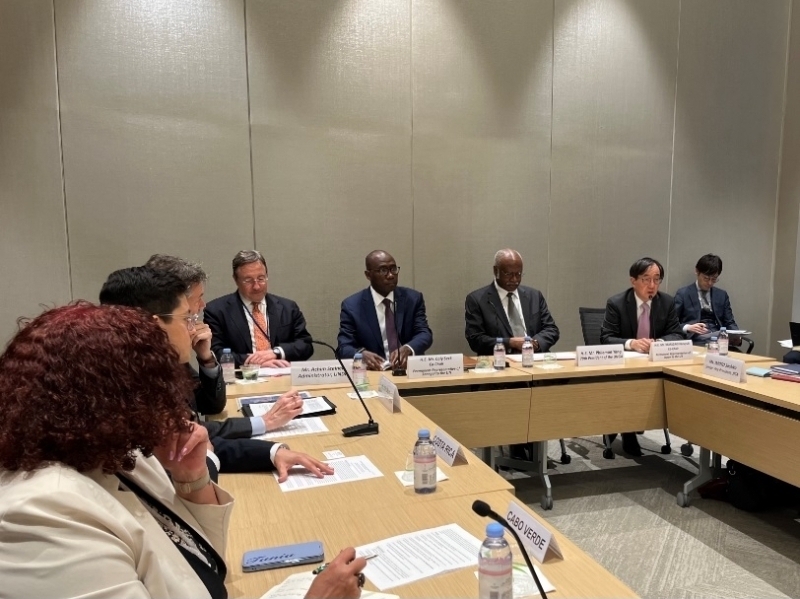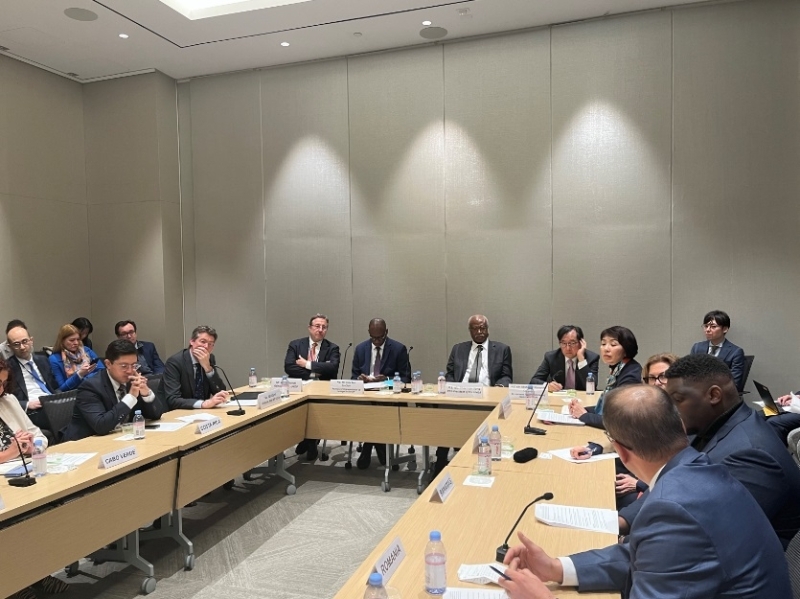第7回人間の安全保障フレンズグループ会合の開催について
令和7年3月5日
 |
 |
The 7th Meeting of the Group of Friends of Human Security was held in New York on 5 March 2025. The meeting was attended by more than 50 people from UN Member States and international organizations. The meeting was moderated by H.E. Mr. Coly Seck, Ambassador Extraordinary and Plenipotentiary, Permanent Representative of Senegal to the United Nations, who serves as Co-Chair of the Group together with Japan. The following is a summary of the meeting.
At the beginning of the meeting, H.E. Mr. Kazuyuki Yamazaki, Ambassador Extraordinary and Plenipotentiary, Permanent Representative of Japan to the United Nations, stated that, in the midst of stagnating efforts to achieve the Sustainable Development Goals (SDGs), it is still meaningful to continue to advocate for the effectiveness of human security as a cross-sectoral approach. He then raised the question of what we should do to ensure that human security continues to provide added value in a new era characterized by the rapid progress of digital technologies including artificial intelligence (AI), as well as the worsening problem of climate change. Ambassador Yamazaki expressed his desire to explore an ideal form of the application of human security for the coming era.
Following this, H.E. Mr. Philemon Yang, President of the 79th United Nations General Assembly, expressed his recognition that human security is useful in responding to issues such as climate change and digitalization, and stated that the concept should guide the efforts of each country to implement the “Pact for the Future” adopted in September of last year.
Mr. Achim Steiner, UNDP Administrator, also pointed out that human security could provide wisdom in considering how to deal with new technologies including AI, and emphasized the importance of protecting people from threats while at the same time creating opportunities.
Ms. Sachiko Imoto, Senior Vice President of the Japan International Cooperation Agency (JICA), introduced an example of the application of human security in water supply facilities in Uganda, effectively explaining the added value of human security combined with digital tools.
Mr. Pär Liljert, Director of the International Organization for Migration (IOM) Office to the United Nations, introduced his perspective on human security, citing data management related to migration in the Sahel region of Africa as an example.
In addition, there was a lively discussion about the activities of the UN Trust Fund for Human Security to date and how they should proceed in the future.
There was a shared recognition at the meeting that it would continue to be effective to utilize the concept of human security in order to achieve the SDGs and to deepen related considerations so that human security can be effectively applied to challenges associated with AI/digital technology and climate change in the new era to come.
